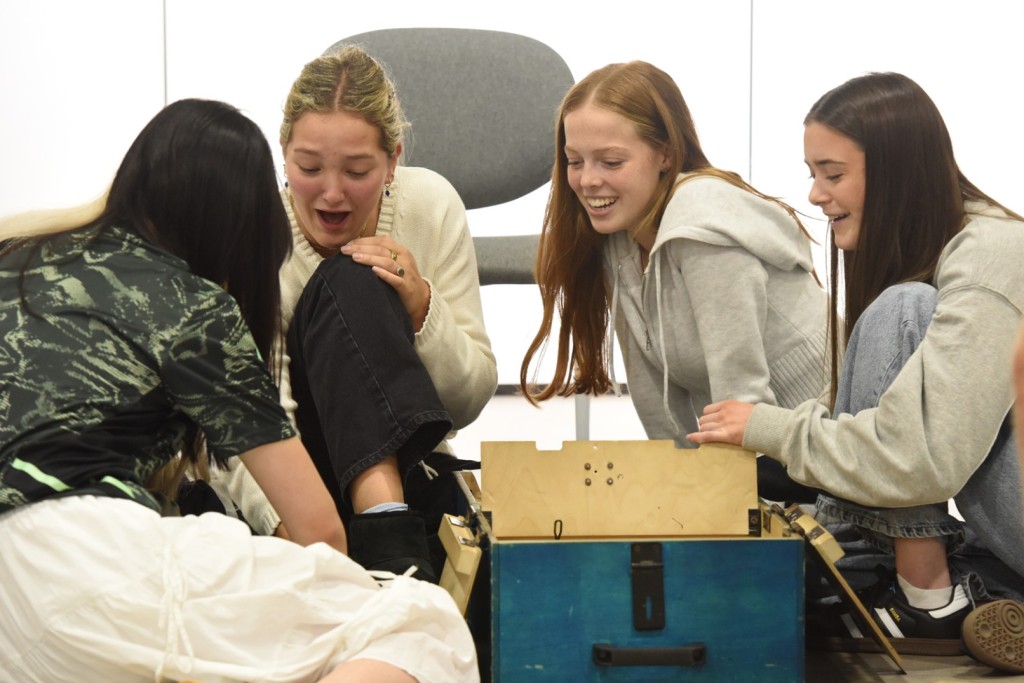Wellbeing and Pastoral Support
Pastoral care is an acknowledged strength of Talbot Heath and stems from a positive partnership between pupils, parents and staff. The aim of the pastoral system is to support girls as they progress through the school, helping them develop socially, morally and academically. The happiness and wellbeing of all our pupils is at the heart of everything we do. We aim to know everyone as an individual and to provide a secure and caring environment, so that every pupil can enjoy her learning.
We strongly believe that a whole school approach which embeds wellbeing and emotional wellness gives a young person the capacity to grow, prosper and learn.
From the initial meeting with parents and throughout their education at Talbot Heath, great care is taken to ensure that every girl is respected, cared for and treated as an individual. The whole school maintains a happy, family atmosphere based on mutual respect where pupils learn the skills to live harmoniously, whilst respecting diversity. The welfare of the girls is of paramount importance to us and it is the responsibility of all members of staff, teaching and non-teaching, to safeguard and promote it, we have established good links with external agencies.
WELLBEING AT TALBOT HEATH
At Talbot Heath we have an experienced pastoral team enabling us to have a proactive approach to wellbeing as well as the ability to quickly provide tailored support to pupils with additional pastoral needs.

Child and family centred – teamwork
Children have the best outcomes when we all work together. At Talbot Heath we pride ourselves on the positive relationship we have with our parents. It is proven that having effective engagement with parents has a positive impact on pupil wellbeing, behaviour, attendance and their sense of belonging. We welcome and value the opinions and views of our parents and enjoy working with them to support our school community. We ensure that parents are invited to listen to inspirational speakers as well as presentations on key pastoral issues.
Emotional Literacy
Emotional literacy is an essential skill that children need to develop to enable them to cope with the challenges life throws at them. From our youngest years we have a real focus on learning to recognise and understand emotions. Wellbeing Wednesday across the school enables pupils to develop a variety of skills to support their emotional wellbeing.
In our younger years we use Mood Metres to ensure that our pupils develop emotional literacy and learn to use a range of vocabulary to be able to express how they are feeling and why.
Pupil Voice is already there, it is not something we give, it is something we honour because we listen

We ensure that our pupils are involved in the decision making process and take ownership of the changes being made that affect the school community. We regularly meet as Key Stage Councils and the School Pupil Parliament. Pupils are encouraged to make suggestions through our Pupil Voice Postbox in the younger years to the opportunity to submit White Papers as they get older.
Generous Hearts – a sense of community
Being a through-school from age 3 – 18 we have the opportunity to develop empathy in our pupils through whole school initiatives such as the 6th Form Bridge, Diana Award Buddies and Year 6 Job Centre to name a few! We have also formed links with our local community and regularly take our pupils to local care homes to enrich the lives of both the residents and our pupils.
Our pupils are encouraged to give back to the wider community through charity events.
PSHE- being part of the wider world
Our PSHE curriculum incorporates learning on relationships, physical and mental health as well as being part of the wider world. We welcome inspirational speakers, including past pupils, to inspire and support our pupils with their wellbeing.

Celebrating individuals- we are all unique
When joining the school pupils are allocated a house. This supports their integration into the whole school community. House competitions take place throughout the year including an annual Christmas pudding and pancake race. We celebrate every individual and allocate house points under a variety of categories including: community, leadership, resilience, creativity, academic and teamwork. Our pupils are able to work towards house colours by achieving points in all areas both for what they have done in school but also with their extracurricular pursuits.
Online safety and screen time
We take online safety extremely seriously. We develop the skills in our pupils to communicate face to face, without the reliance on social media. We have a no mobile phone policy and use Yondr pouches to ensure that our pupils spend precious time with their friends during the school day developing the skills lost when communicating via technology. We work closely with parents to support them with decisions with regard to technology and educate our community on the benefits and concerns of screen time and social media.
Additional support with mental health
Early help and intervention to support a pupil’s wellbeing is essential and enables the individual to develop skills they need to live a happy and successful life. At Talbot Heath we have a number of ELSAs (Emotional Literacy Support Assistants) as well as an in- school full time wellbeing counsellor and nursing team. Support begins with the tutor team, who know our pupils well, and are able to assist individuals with their day to day wellbeing needs. Wellbeing surveys give our pupils a voice to share how they are feeling and direct our whole school wellbeing strategy as well as individual and group intervention. Our ELSA team supports individuals with a range of skills including; transition to a new class, creating and maintaining friendships, and emotional development to enable our pupils to positively cope with life’s challenges and find solutions to problems they might have. If a pupil’s need is more complex we work closely with a range of external agencies to get the best support for every individual.

